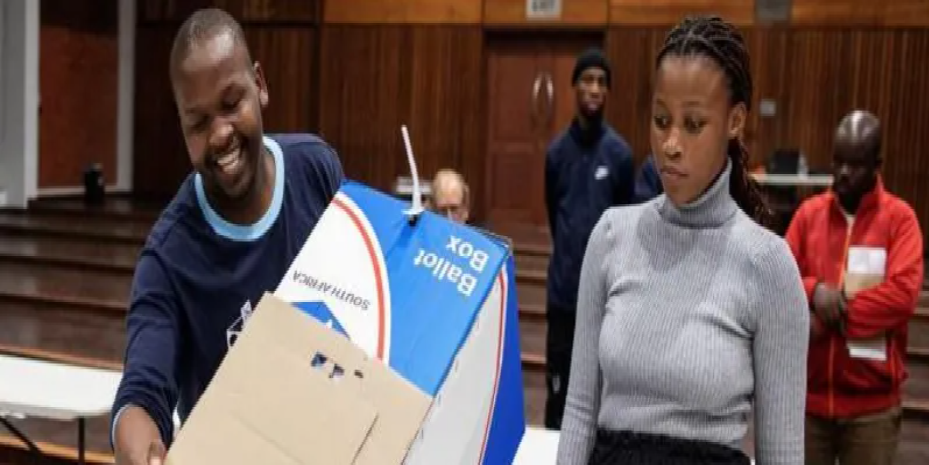The initial outcomes from what’s seen as South Africa’s most fiercely debated elections since the African National Congress (ANC) assumed power three decades back are out. This marks an important time in the country’s democratic past. So far, counting of the votes has been wrapped up in almost 27% of the total voting stations. With the counting so far done, ANC is at the front with 43%, next in line is Democratic Alliance (DA) which has 25%. The Economic Freedom Fighters (EFF) which is famous for their hardline approach is at 9%, compared to the uMkhonto weSizwe Party (MK Party), headed by former President Jacob Zuma, which is at approximately 8%. The South African election process is spearheaded by Uhuru Kenyatta, the former president of Kenya. The complete results of the election will be disclosed over the weekend. ANC has maintained the majority number in parliament since 1994 when the apartheid system was terminated in South Africa. However, these first results predict that they may lose that position for the first time in history. Just like any other African country, South Africa is facing a lot of challenges like crime, unemployment, and increasing corruption levels. A lot of citizens point fingers at the ANC for causing these issues. A young girl playing with her teddy bear while people are voting In the 2019 elections, ANC experienced a win of 57%. However, this year it is likely to experience a decrease to 42% which is a huge loss to the party. This information was predicted by the News24 website and the respected Council for Scientific and Industrial Research (CSIR) The decrease is likely to push ANC into forming collaborations with one or more other parties to reach the majority needed in parliament. Before forming the collaborations, ANC will have to bear in mind that Democratic Alliance has market oriented policies, while the two other parties prefer nationalisation and more state intervention. Choosing a partner is expected to bring a huge difference to the route South Africa is taking. Democracy Works Foundation, a non-profit organization, through their leader Prof William Gumede, stated that it’s uncertain whether President Cyril Ramaphosa will stay in his role. Prof William also added that President Ramaphosa could get a lot of pressure from the ANC to resign. The pressure can be caused by the party attaining less than 45% in the end results. He explained that the deputy, Paul Mashatile, might be in line to take over from the president. A citizen arguing with the polling station officer In South Africa, unlike in many other African countries, voters do not directly elect the president; instead, they vote for members of parliament who later elect the president. In KwaZulu-Natal, Mr. Zuma’s party possesses 43% of the votes, while the ANC has 21%. These results from this area indicate a few of the difficulties that ANC is experiencing from MK. Mr. Zuma surprised many in December when he revealed that he was leaving the ANC to campaign for MK. KwaZulu-Natal, the province with the second-highest number of registered voters and Mr. Zuma’s home will be important in determining whether the ANC can maintain its majority control in the parliament. Despite being prohibited from running for parliament due to a disrespect of a court order, Mr. Zuma’s name emerged on the ballot paper as the leader of MK. In Gauteng, South Africa’s business capital, the ANC holds 36% of the vote, while the DA has 29%. This is another region where the ANC is projected to fall behind. The South African elections, conducted on Wednesday, drew crowds of citizens, and the voting process went into the wee hours. People queuing to vote Reports from the electoral board indicate that the last polling station was on until 0300 on Thursday morning local time. The last time South Africa had such long queues during an election was in 1994, when black people were granted the freedom to vote for the first time. In the election, a total of 11 independents and 70 parties ran for office as the country chose nine provincial legislatures and a new parliament. The DA had earlier agreed to cooperate with 10 parties to form a government if they gathered enough votes. This coalition could potentially kick the ANC from their long-held position of power since 1994.


